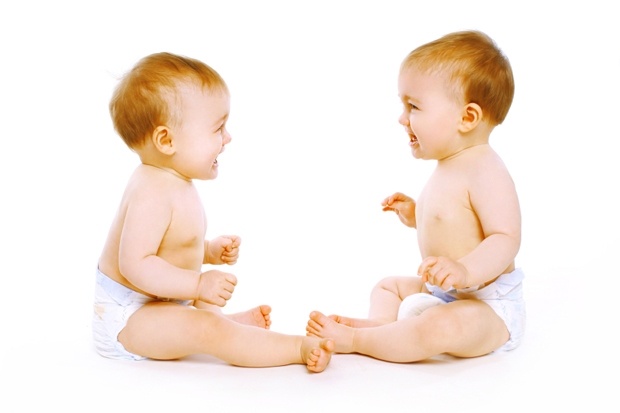I’ve been doing some thinking recently about the findings of behavioural geneticists and their implications for education policy. For instance, a study of more than 10,000 twins found that GCSE results are nearly 60 per cent heritable. (This research, by Robert Plomin, was first revealed in The Spectator.) So genetic differences between children account for almost 60 per cent of the variation in their GCSE results, with the environment, such as the schools they go to, accounting for less than 40 per cent. One very obvious implication of this research is that we may need to lower our expectations when it comes to the impact schools can make on the underlying rate of social mobility.
But behavioural geneticists are upending our assumptions in other areas, too. Parenting, for example. Most middle-class parents, me included, believe that how you bring up your children has a major impact on their life chances. That’s why we spend so much energy on -getting them to put down their screens, do their homework, practise the piano, etc. But, as The Spectator also pointed out back in 2013, if you look at some of the biggest determinants of success — IQ, conscientiousness, grit — they are far more heritable than we like to imagine. Our children’s destinies aren’t set in stone from the moment of conception, but the difference that a good parent makes is fairly negligible. The one crumb of comfort I’ve been able to dig up is that the -ability to give and receive love isn’t very -heritable. Perhaps that’s something we can teach our children?
What about art? One disturbing consequence of discovering that many of our personality -differences have a basis in genetics is that plenty of western art — particularly popular arts, like Hollywood -movies and genre fiction — turns out to be a lie. I’m thinking of stories that involve a hero going on a transformative journey and, in the process, changing from a passive, half-alive individual to being master of his own destiny.
But behavioural genetics -teaches us that people rarely switch personality type after a pivotal experience. On the contrary, people seek out those environments that accentuate their genetic predispositions. In real life, those remarkable individuals that seem to cheat fate in some way are in virtually every case genetically exceptional. If they are more wilful than their peers, more imaginative, more energetic, it’s because, to a great extent, that’s the way God made them. They may feel like the authors of their own lives, but that’s just a vainglorious self-deception. Wittgenstein came up with a good metaphor for this particular illusion. He said human beings are like autumn leaves being blown about in the wind, saying: ‘Now I’m going to go this way, now I’m going to go that way…’
As for the great novels of European and American literature, they are almost laughably pointless. As I understand it, the point of a really good novel is to enable you to commune with another soul and, by so doing, enlarge your sympathies and understanding. That’s particularly true of the great social realists like Charles Dickens, Victor Hugo and John Steinbeck. Reading them is supposed to be morally improving — they acquaint us with the suffering of others in a way that’s so moving and powerful it’s impossible to ignore.
Unfortunately, the studies of criminality by behavioural geneticists lead to the conclusion that when it comes to good and evil, our choice is largely pre-ordained. The research evidence produced by twin, adoption and family studies reveals that antisocial behaviour, including criminality, is roughly 50 per cent heritable. More than half of prison inmates have mental disorders and the vast majority of those disorders are also predominantly heritable. Which explains why recidivism rates are so high. It really wouldn’t matter if you played The Grapes of Wrath on the prison PA system 24/7 — most inmates would still reoffend as soon as they got out. According to America’s Bureau of Justice Statistics, 77 per cent of prisoners released in 2005 were arrested for a new crime within five years. Which, come to think of it, renders most religious belief systems pretty pointless too — and needless to say, religiosity is approximately 50 per cent heritable.
We are in the midst of an intellectual revolution in which almost every-thing we believe turns out to be wrong. It’s exciting, but profoundly discomfiting at the same time.







Comments